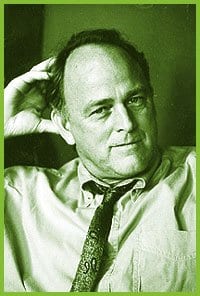I ran my finger along the fluted edge, relishing its hardness against my digit. I paused, took a breath and traced its shape with my forefinger – down along its sleekness, toward the pearled substance pooled at its bottom. I twirled my finger, scooping up the liquid onto my skin. I drew up it toward my face, popped it into my mouth, encasing it with my tongue. How I loved the taste of it!
“Now don’t you be doing that.” My grandmother slapped my hand, which fell out of my mouth, splattering the sugary tea residue onto the table. She rummaged for a Graham cracker in the wicker box that held her tea paraphernalia. “Here, this is what you need.” She thrust the limp brown wafer at me. Her stern look shattered my four-year-old resolve. I could not refuse her even though I hated that biscuit’s tastelessness.
Years later, when my four brothers and I were in full-throttled adolescence, my mother always made sure there was a giant-sized box of corn flakes on the morning table. Another food I disliked, a soggy clump of slivers in the bowl of my spoon. I would do anything – take out the garbage, sweep the floor – to avoid having to eat them. And when I couldn’t avoid it, I swallowed them quickly to get through the chore of eating them.
These memories always intrigued me. Why was food for children always so bland? I assumed it was just like everything else in the ’50s – insipid tracks of houses replacing the wildness of forests and fields on the outskirts of the city, television shows where the last two minutes sugar-coated every problem.
Recently, reading A Mind of Its Own, A Cultural History of the Penis by David Friedman, I discovered the truth. Both Graham crackers and corn flakes were developed by two Americans, Sylvester Graham in 1834 and John Kellogg in 1884. Their products were weapons in the war against vice. Both foods were promoted and believed to cool the overheated brains of young boys and men who had a penchant for that most solitary of habits – masturbation.
Given that most males happily (and guiltily) partake in it throughout their life, where did this abhorrence come from? In ancient Egypt, the myth of creation of the world came about due to semen spilling through the fingers of the god Arum. But by medieval times, Albert the Great was preaching to the converted that loss of semen addles the brain, reducing the body to a cadaver. And, worse, some sermonizers spoke of semen as the stuff of demons. Former angels of light gone to seed so to speak; gathering up the milky life-force of men who masturbated so they could impregnate women who were witches.
Then the age of enlighten-ment and science got involved. In 1758, Dr Samuel-August Tissot published a study on the maladies found in practitioners of the skin flute. Drawing upon patients from his practice in Switzerland, the good doctor provided case after case in which too much French polishing of the pole had led to afflictions such as weak digestive systems, respiratory problems, sterility, tumors and sexual diseases. The ultimate result was blindness and insanity. Masturbation, which involved using the brain to fantasize about an object of lust, caused the cerebrum to become overheated and, like a kettle, run dry.
The good doctor’s book became a bestseller in its day and was translated into many languages. Others doctors followed suit, recommending remedies that ranged from the application of leeches, sewing or closing the foreskin, attaching electrodes, dabbing acid on the penis or imprisoning it in a cage, a spiked ring or a plaster cast (Makes one wonder who really had a fetish).
Yet despite all of the doom-and-gloom preaching across the centuries, generations remained masters of the procedure. The matter, after all, always remains close to hand. And like voices crying in the wilderness were gay men, such as Walt Whitman and Herman Melville, who sang about the joys one derives from the body.
Whitman, in poems collected in Leaves of Grass, spoke of “milky stream pale strippings,” “beautiful dripping fragments” and “the young man that wakes deep at night, the hot hand/ seeking to repress what could master him.” Whitman had written that his poetry was about arousal. For him, creativity, like jerking off, was about release.
Melville, in his novel Moby Dick, wrote about a technique called sperm squeezing, the collecting of a whale’s semen. Ishmael, one of the novel’s main characters, waxes euphoric about his experience with the routine. Aroused by the feel and smell of the “soft, gentle globules of infiltrated tissues,” he longs to squeeze the hands of his fellow sailors, to squeeze himself against them, to “squeeze ourselves universally into the very milk and sperm of kindness.” And later, Ishmael recalls the event by thinking: “Would that I could keep squeezing that sperm forever.”
In a twist of irony, as Friedman points out in his book, while in their day, most of the crusaders against masturbation were read widely and held much sway, today, their work is largely forgotten. On the other hand, the celebrants Whitman and Melville, whose work during their own lifetimes brought condemnation and who lived and died in poverty, are considered seminal authors whose writings were ahead of their time.

 Why you can trust Xtra
Why you can trust Xtra


